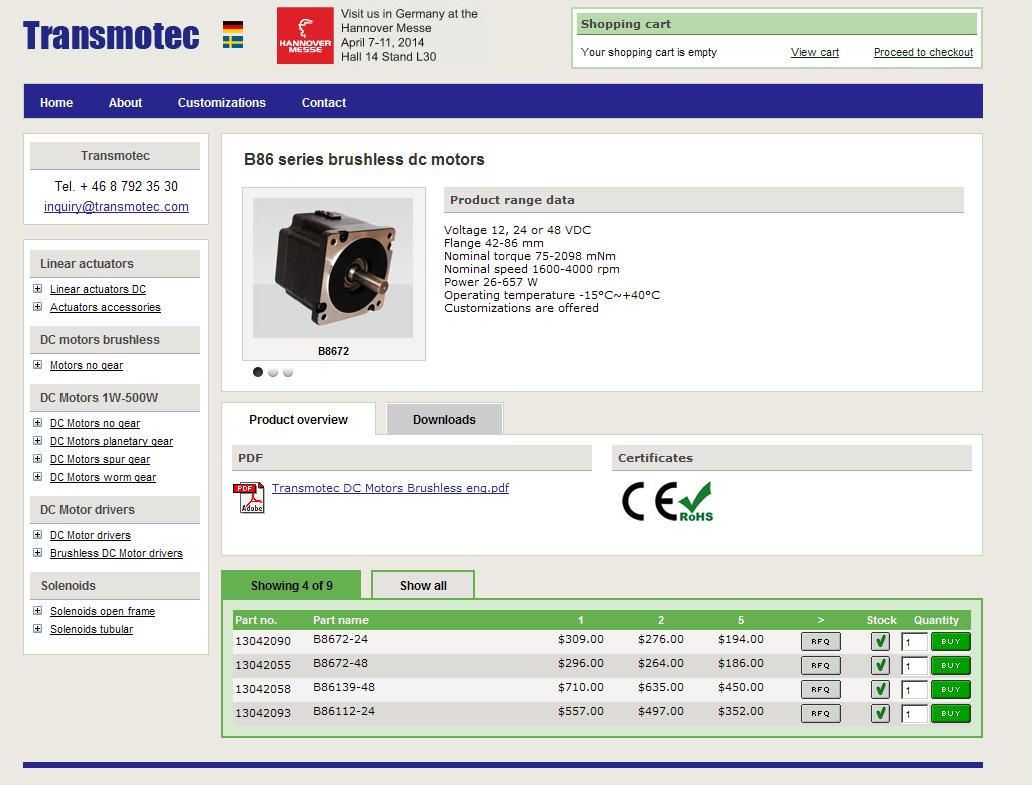I'm an industrial designer, and am working on building a small electronic rover,
however I've been doing some research and I feel a little bit lost in terms of what motor is best for me,
The device consist on a 4wd electric vehicle, (a dc brushless motor on each wheel)
Wheel diameter: 7cm
Weight carried: 100kg (mass 980N)
Top speed: 20km/h (results in about 2000rpm)
Acceleration: 0.4m/ss (value may vary)
After doing some research I plugged numbers in equations and figured out the following:
Total torque: 40N
Torque in each motor: 0.350Nm
Power required by each motor: 73 watts
Now, this means I need a dc motor which gives me 2000rpm and a 0.350Nm torque As I have little experience with these motors, I can't seem to find any that match these settings,
The question is: Am I looking for something feasible by a dc brushless motor?
Follow-up question: What Voltage/Amperage values am I to expect from a motor of these characteristics?

